WIESBADEN, Germany - A sea of green stared down at Sgt. 1st Class Lori Luster as she stifled a sob.
In front of Gen. Carter Ham, U.S. Army Europe and 7th Army commander, and a crowd of 800 Soldiers, mostly noncommissioned officers, Luster fought to keep her composure.
Her hands shook and her lips quivered as she detailed her downward spin into depression.
Luster was a keynote speaker for the U.S. Army Garrison Wiesbaden's Suicide Prevention Training seminar for NCOs.
The first of its kind in U.S. Army Europe, the two-hour event carried a clear message. The stigma of seeking help for psychological health issues has to be overcome.
During two separate deployments, Luster had endured two losses - the combat deaths of her fiance and her battle buddy from basic training. With anger, hatred and rage consuming her, Luster said she wanted to die.
While deployed, she volunteered for missions when her unit left the forward operating base. She admitted to putting her life on the line because she didn't feel like her life was worth living.
Luster, with the 501st Military Police Company, Special Troops Battalion under the 1st Armored Division, dabbed at her tears with a tissue.
"I thought this was something I could work through myself," she said. "I thought wrong." The hardest part was overcoming the fear of being seen as weak.
Army officials are working to overcome the stigma of mental health treatment as numbers for reported suicides in the Army continue to rise. In 2007 the Army had 115 confirmed cases of suicide. In 2008 it was 140 cases. And already this year, 109 suicides have been reported as of Aug. 24.
A three-phase approach to suicide prevention training was implemented this year. Phase III is the annual training of Soldiers on suicide awareness prevention.
"With Phase III the Department of the Army wants to make sure there is a maintained emphasis on suicide prevention," said Tahroma Skugrud, health promotion officer.
The Sept. 14 training at the Wiesbaden Fitness Center was part of the Wiesbaden units' Phase III training and recognition of Suicide Prevention Month.
"In survey after survey after survey large numbers of Soldiers admit to being afraid of being perceived as weak if they ask for help," said Ham.
"It's a challenge for the leaders of our Army. It's up to you; it's up to us to identify the warning signs ... encourage (Soldiers) that they won't be treated differently, but (that they will be) treated with dignity and respect if they ask for help," Ham said.
Skugrud said NCOs were targeted for the training because of their key positions in the process of recognizing the warning signs for suicide. The training was also a way to honor them during the Year of the NCO.
"If you don't talk to your Soldiers, you won't know what's going on," said USAREUR Command Sgt. Maj. Ralph Beam during the training.
Ham and Beam both stressed that NCOs are the Army's direct connection to Soldiers. "No one knows the Soldiers better than you," they said.
Wiesbaden's Suicide Prevention Training pulled experts and personnel from the Wiesbaden Health Clinic, health promotion and behavioral health department and garrison tenant units.
The event used first-person testimony, encouragement from high-ranking Army commanders and interactive skits designed to facilitate open dialogue about behavorial health.
One of the crowd's loudest rounds of applause came for a skit that reflected the stresses involved with being a first sergeant - unanswered emails, piles of reports, troubled Soldiers, family demands and the uneasy feeling of going on another deployment.
Actors shouted, screamed and mumbled their emotions playing their parts as both superiors and lower-ranking Soldiers. And for each, the skits were replayed with a "what should have happened" reenactment.
Most skits were resolved with a single NCO taking the time to "Ask, Care and Escort" - a demonstration of the ACE Suicide Prevention program.
"As leaders of this Army, we have to openly acknowledge this problem," said Ham. "Most of us have served in a unit where a Soldier or family member has committed suicide. And now because of courageous Soldiers, we can talk about this."
Luster said she was physically and mentally exhausted by the time she entered a reintegration station and someone asked if she wanted to talk to someone. She broke down and finally accepted help.
"There is no shame in admitting that one needs help," said Luster as she ended her speech. "I hope you can use (my story) to benefit your Soldiers."
And the crowd of NCOs and officers erupted into applause.
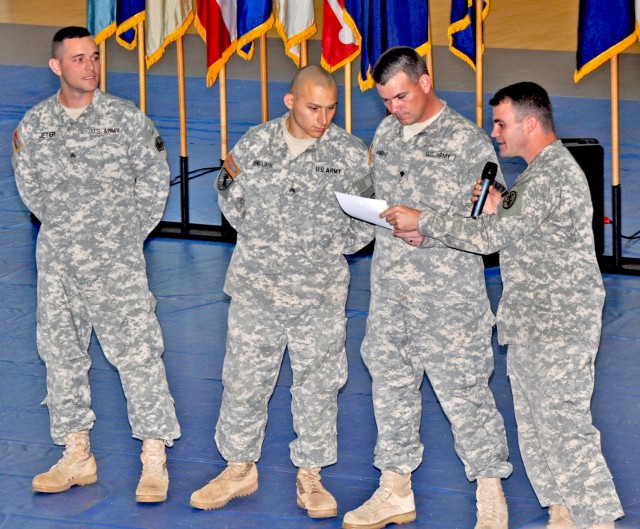
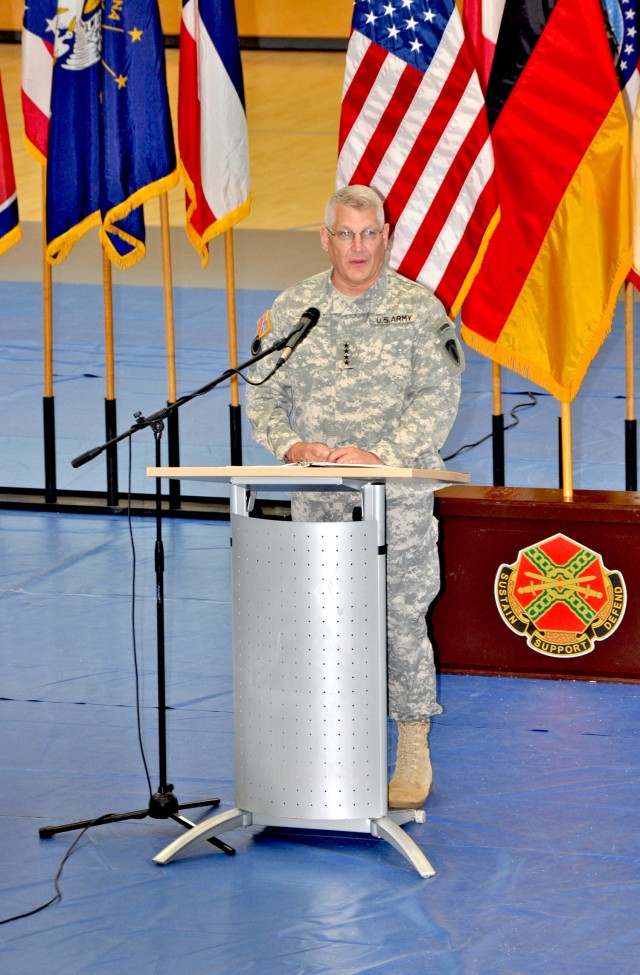
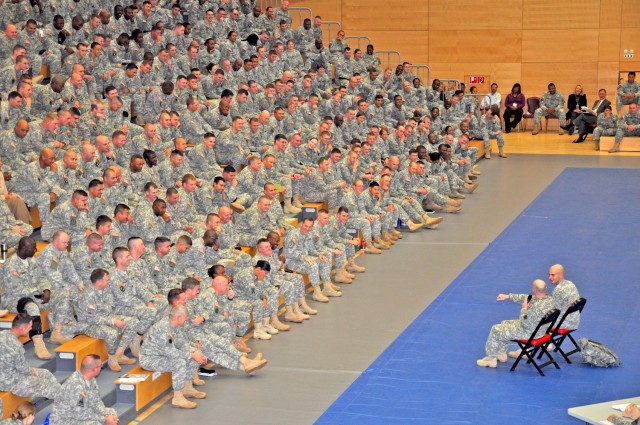
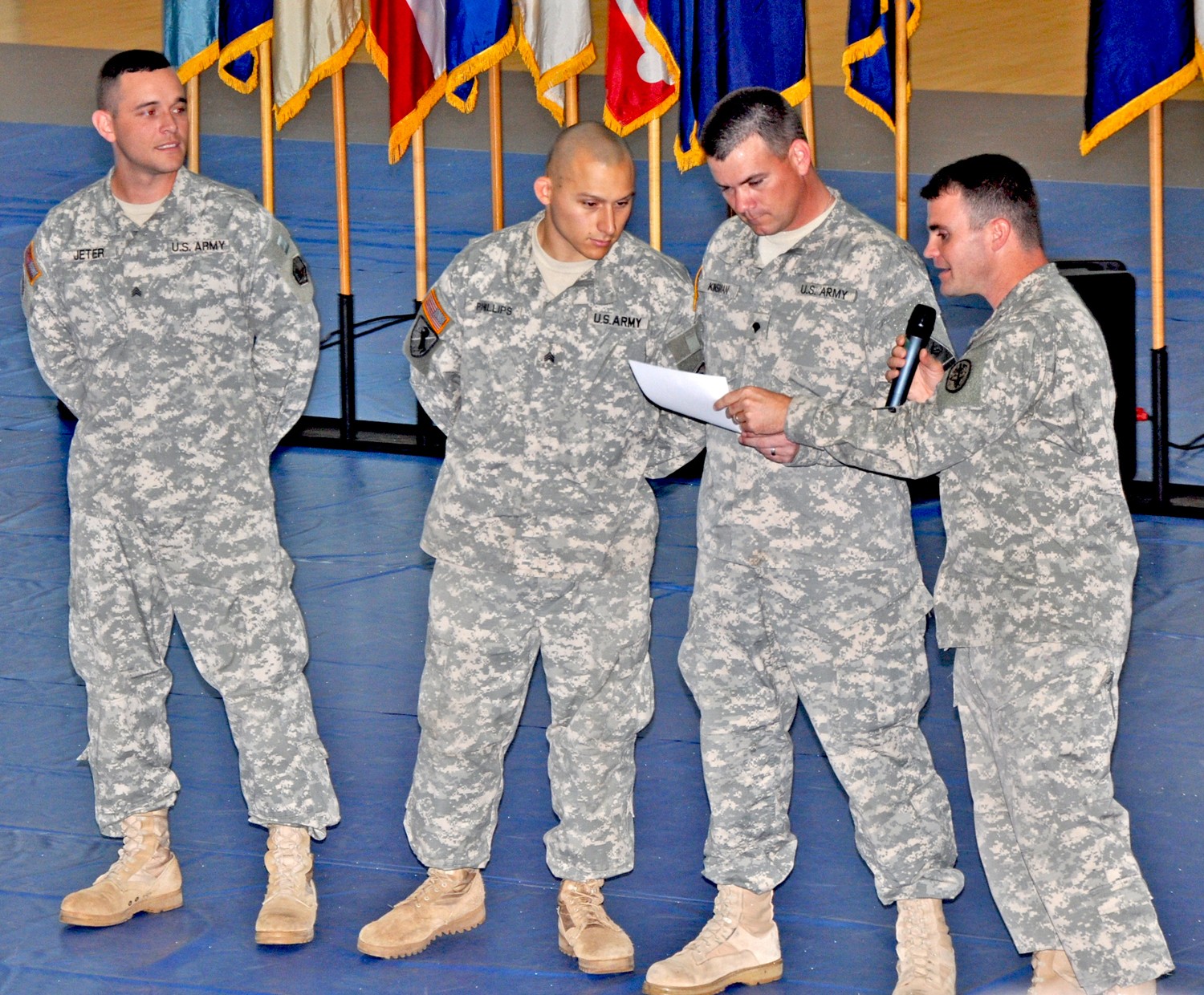
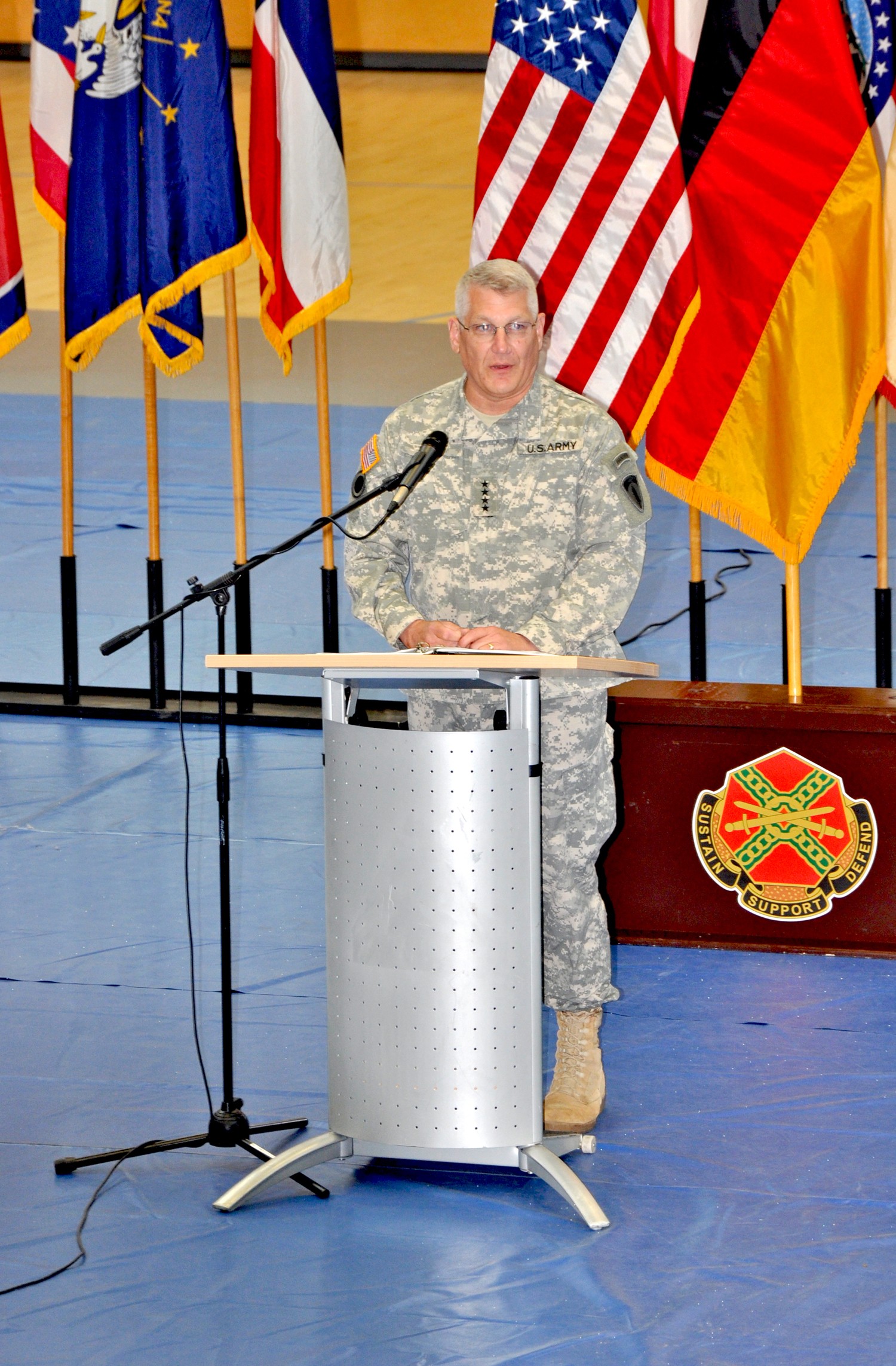
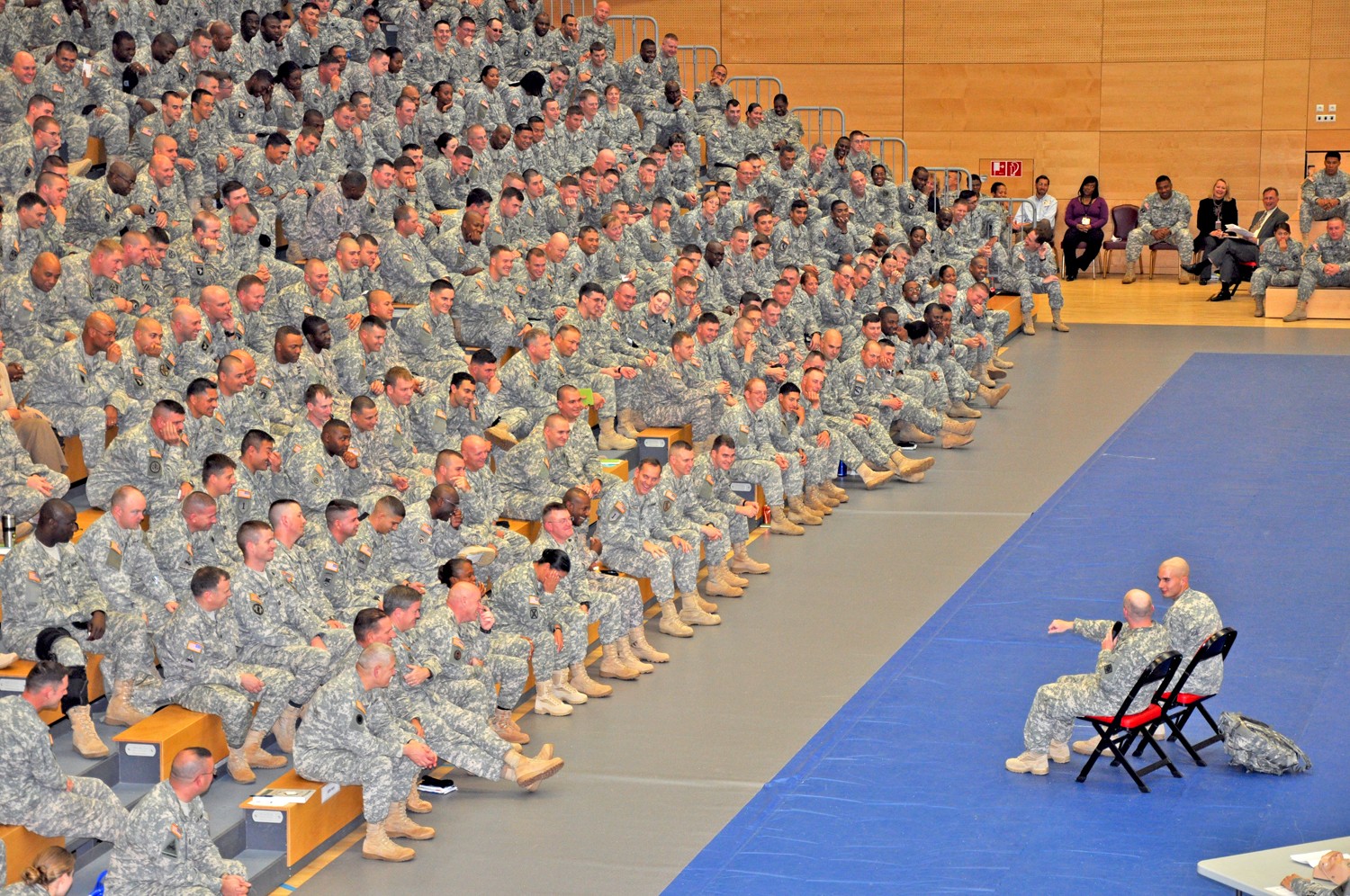
Social Sharing